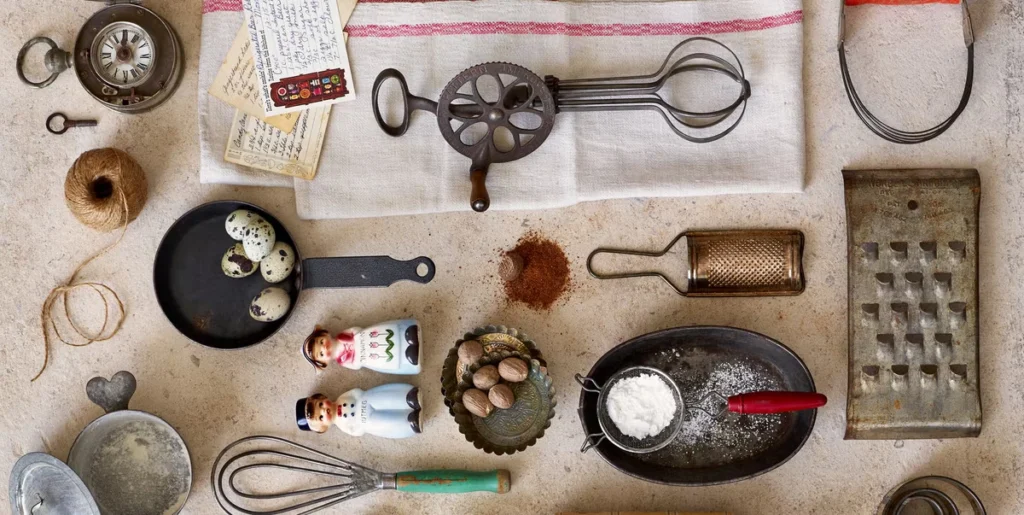Torch Carriers

As you know what’s been keeping me up at night lately? It’s not worrying about whether the chickens remembered to go back to their coop. They didn’t, they never do. It’s not worrying if I remembered to close the gate to the pasture. I probably didn’t. It’s thinking about the in our homesteading community and how they balance it all.
Embrace Simplicity
It’s this nagging question that hits me when I’m knee-deep in some traditional skill that takes three times longer than the modern equivalent: “Why exactly am I doing this to myself?”
Like last week, when I spent an entire afternoon rendering lard from our home-raised pigs. I could have just bought a container of cooking oil at the store like a normal person. By the time I was done, my kitchen looked like a crime scene. I smelled like I’d been wrestling bacon for hours, and I had maybe two cups of lard to show for my efforts.
My rational brain kept asking: “Wouldn’t it be easier to just buy coconut oil?”
But there I was, stirring and straining and carefully ladling this golden fat into mason jars. It was as if I was preserving liquid gold. And you know what? I felt absolutely fantastic about it.
This got me thinking about all of us—the homesteaders, the makers, the people who choose the hard way when easier options exist. We’re like keeping alive skills and knowledge that most of the world has completely forgotten. But sometimes I wonder: are we preserving something valuable, or are we just being stubborn?
“Why DO we do these things?”
I’ve been asked this question more times than I can count. It’s usually by well-meaning friends who watch me spend hours doing something they could accomplish with a quick trip to Target.
“Why do you grow vegetables when the farmer’s market has better ones?”
“Why do you make your own bread when the bakery down the street is amazing?”
And honestly? Sometimes I ask myself the same questions.
When I’m out there in 20-below weather breaking ice on water tanks, I definitely question my life choices. My neighbor’s automatic heated waterers are humming along just fine. When I’m spending my Saturday canning green beans instead of lounging by someone’s pool, I wonder if I’ve lost my mind.
But here’s what I’ve realized: we’re not doing this because it’s convenient or even because it’s always better.
Every generation has them—the people who refuse to let important knowledge disappear. This happens even when it’s no longer necessary for survival. We’re the ones who remember how to make butter from cream. We know how to preserve food without industrial equipment, how to raise animals humanely, how to coax vegetables from soil.
We’re living libraries of practical knowledge that our grandparents took for granted but our children might never learn.
The thing is, being a homesteader isn’t always glamorous. Most of the time, it’s sweaty, messy, time-consuming work. It produces results you could easily buy elsewhere. It requires you to swim against the current of convenience culture. You need to accept that people will think you’re a little eccentric.
But I’m convinced it’s crucial work, even when—especially when—it seems unnecessary.

Here’s what scares me about our modern world: we’ve become so dependent on convenience that we’ve forgotten how to do basic things for ourselves. We’ve outsourced so many fundamental skills. Most people wouldn’t know how to feed themselves if the supply chain hiccupped.
This isn’t catastrophic thinking—it’s just reality. How many people do you know who could grow a garden if they had to? Who could preserve food for winter storage? Who could cook a meal from raw ingredients without following a recipe on their phone?
We’ve created a society where ease is valued above all else. While that’s brought us some incredible benefits, it’s also made us incredibly fragile.
When the pandemic hit and everyone suddenly couldn’t find bread or toilet paper, who were the calm ones? It was the people who already knew how to make bread and had been stocking essentials for years Self-sufficiency isn’t paranoia—it’s basic adulting.
But beyond the practical benefits, there’s something deeper happening when we choose the harder path. There’s a satisfaction that comes from creating something with your own hands. You just can’t get this satisfaction from clicking “buy now” on Amazon.
When I eat an egg from one of our chickens, I know that bird’s entire life story. I know what she ate, how she was treated, whether she was healthy and happy. When I cook with lard I rendered myself, I know exactly what went into it and can trust it completely.
This isn’t about being superior to people who make different choices. It’s about recognizing that there’s value in maintaining these connections to our food, our skills, and our heritage.
After years of choosing the harder path, swimming against the current of convenience culture, and explaining to confused friends why I spend my weekends doing things machines could do better, I can definitively say: yes, it’s absolutely worth it.
Not because it’s easier (it’s not), not because it always saves money (it usually doesn’t), and not because everyone should live this way (they shouldn’t have to).
It’s worth it because our children deserve to know that humans are capable of providing for themselves. We don’t have to be completely dependent on systems we don’t understand or control.
It’s worth it because someone needs to remember how to do these things, and it might as well be us.
Every time I successfully make cheese from our cow’s milk, I’m not just creating food—I’m keeping alive knowledge that could be crucial someday. Each time I preserve our garden harvest, I’m not just storing vegetables—I’m maintaining skills that kept humans alive for thousands of years.
Every time I choose to do something the old-fashioned way, I’m casting a small vote for self-reliance, for craft, for the idea that humans are capable of more than just consumption.
But we’re preserving something precious: the knowledge that humans are resourceful, capable, creative beings who can provide for themselves and care for their communities.
In a world that’s increasingly digital, processed, and disconnected from natural cycles, we’re the ones who remember that food comes from soil. We remember that animals deserve good lives and that there’s magic in transforming raw materials into something useful with your own hands.
So yes, it’s harder. Yes, it’s sometimes frustrating. Yes, people will think you’re a little crazy.
But the world needs. It needs people who refuse to let important knowledge disappear into the convenience of modern life.
And honestly? Once you’ve tasted homemade bread still warm from the oven, eaten an egg collected minutes before breakfast, or felt the satisfaction of preserving your own harvest for winter, you’ll understand why we choose this path.
We’re not just making food…..we’re keeping alive the skills and knowledge that connect us to our heritage and could secure our future.
That lard I spent all afternoon rendering? It’s going to make the most incredible pie crusts. Every bite will remind me that I’m capable of creating something beautiful from something others might waste.
That’s the torch we carry: the knowledge that we are more capable than we know. We are more resourceful than we remember, and more connected to our heritage than modern life would have us believe.
Keep your burning bright, fellow? The world needs what we’re preserving.


Leave a Reply